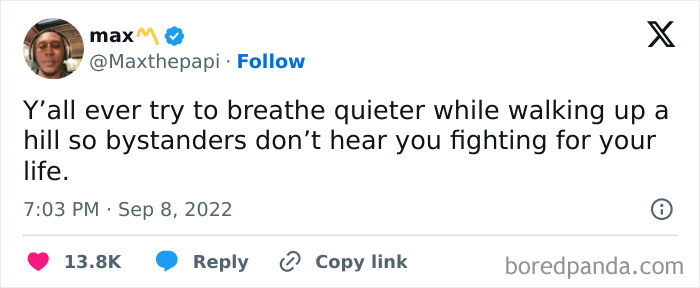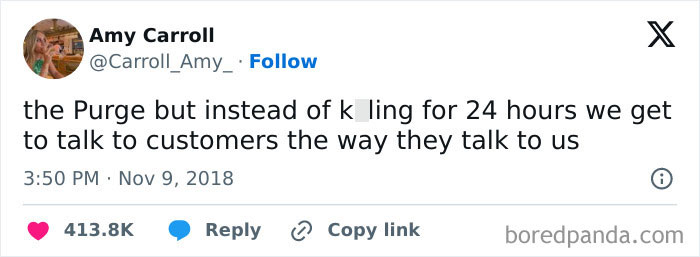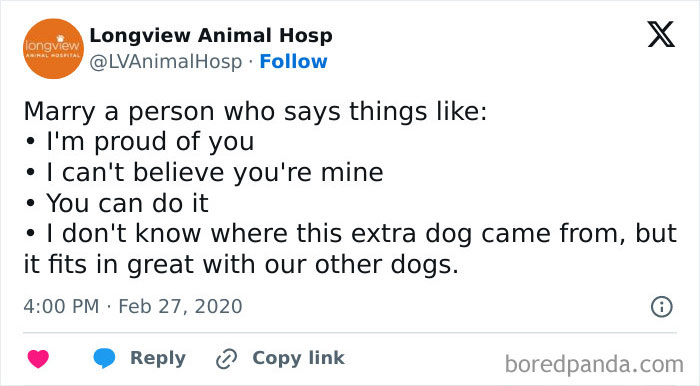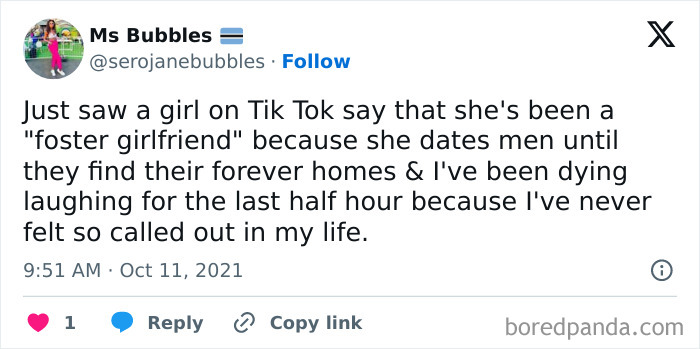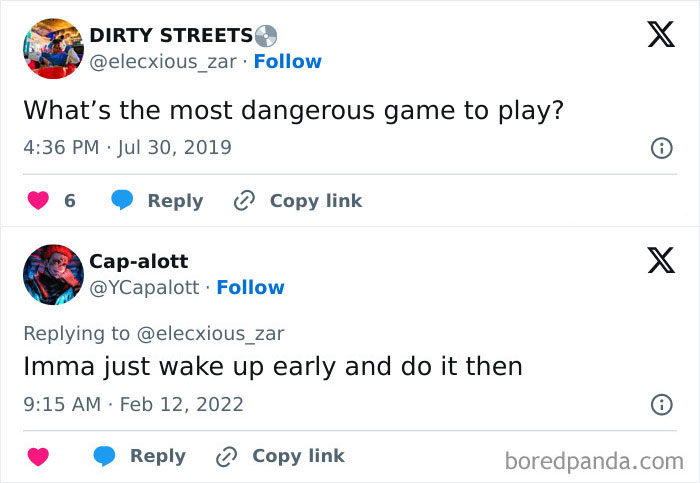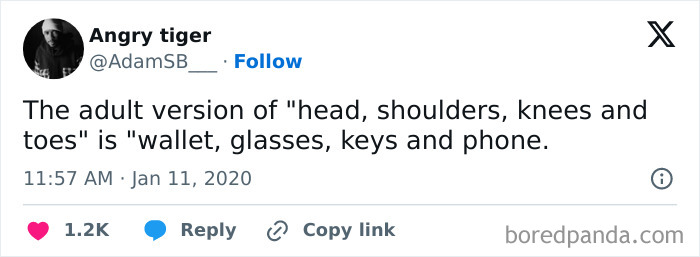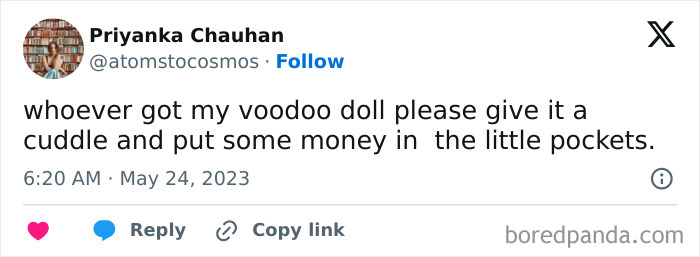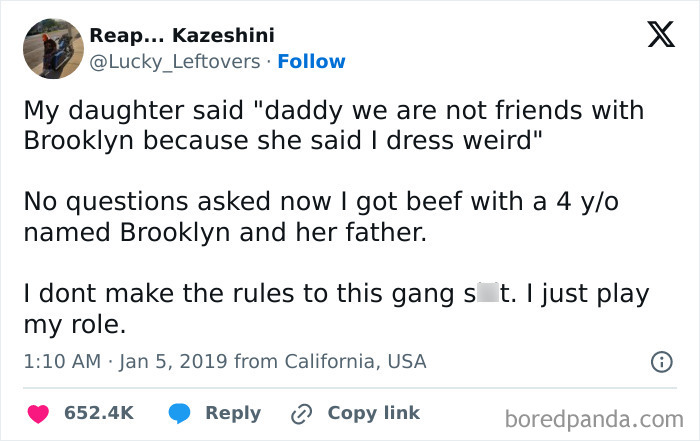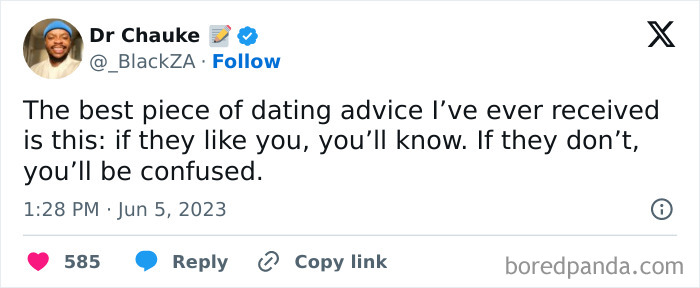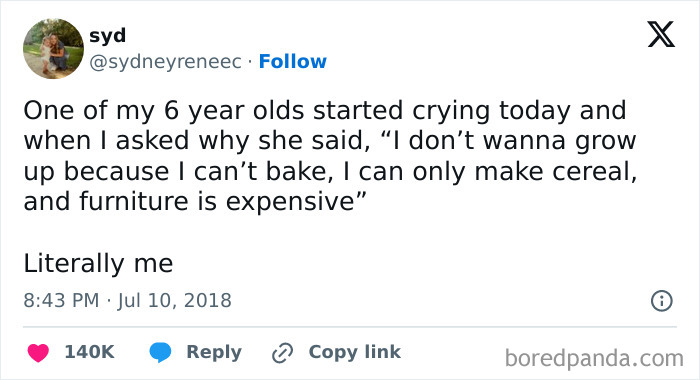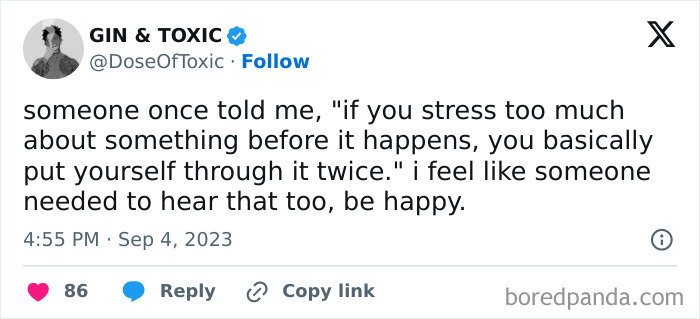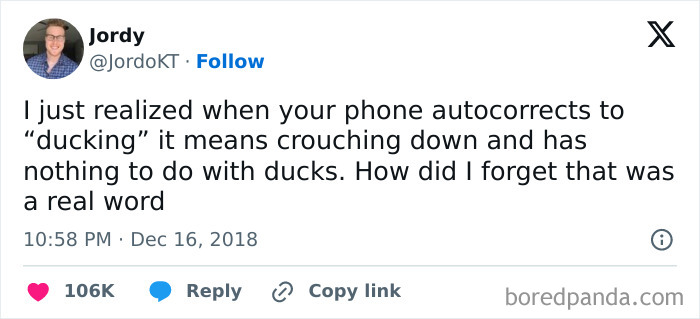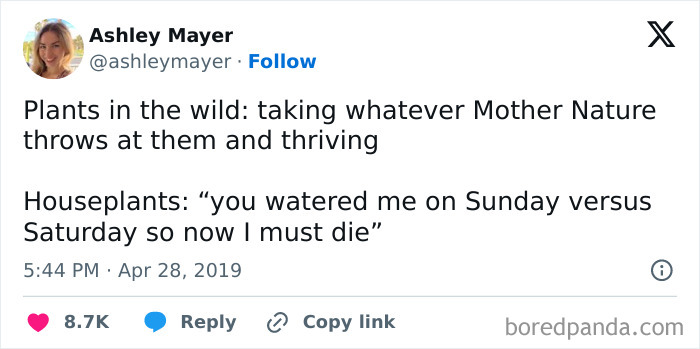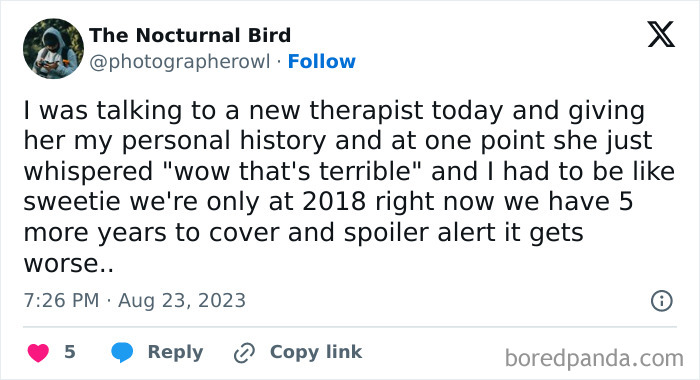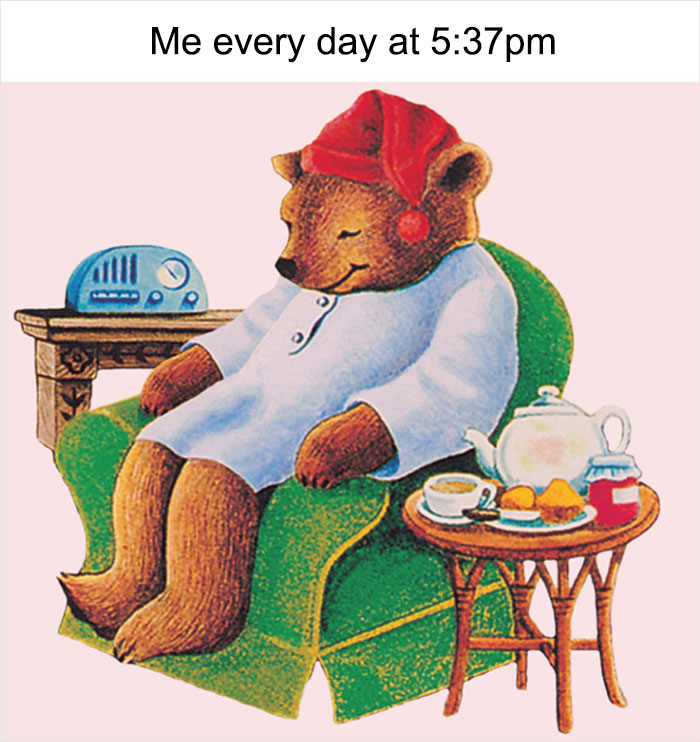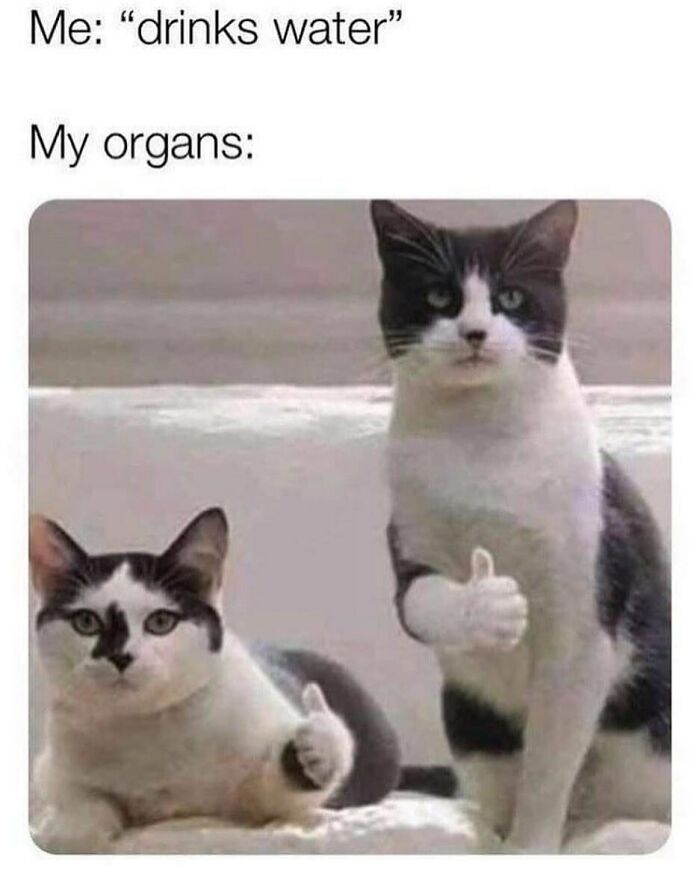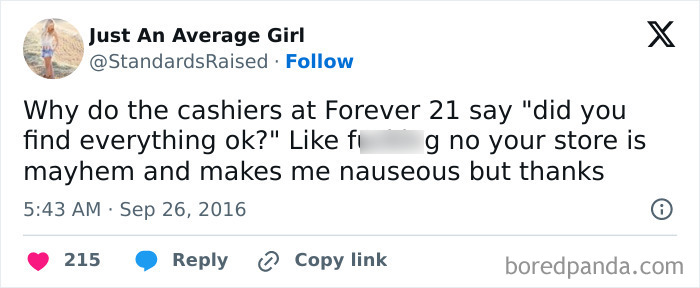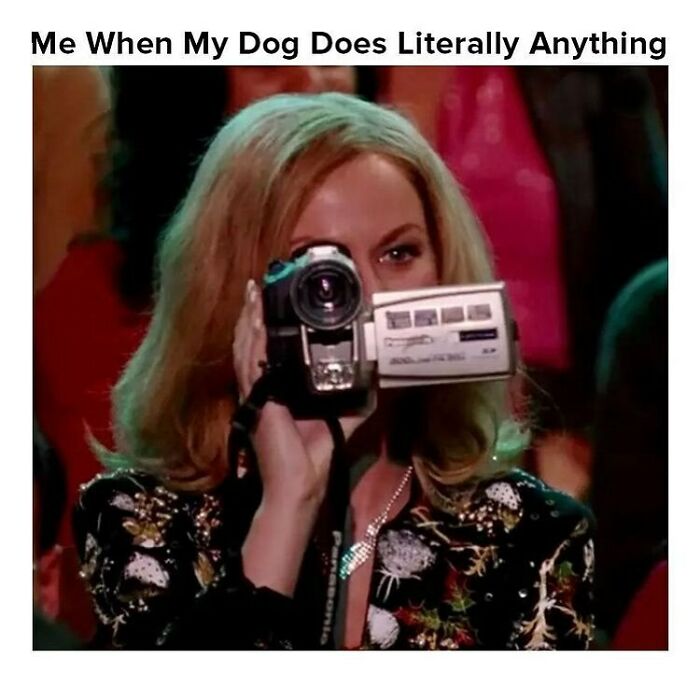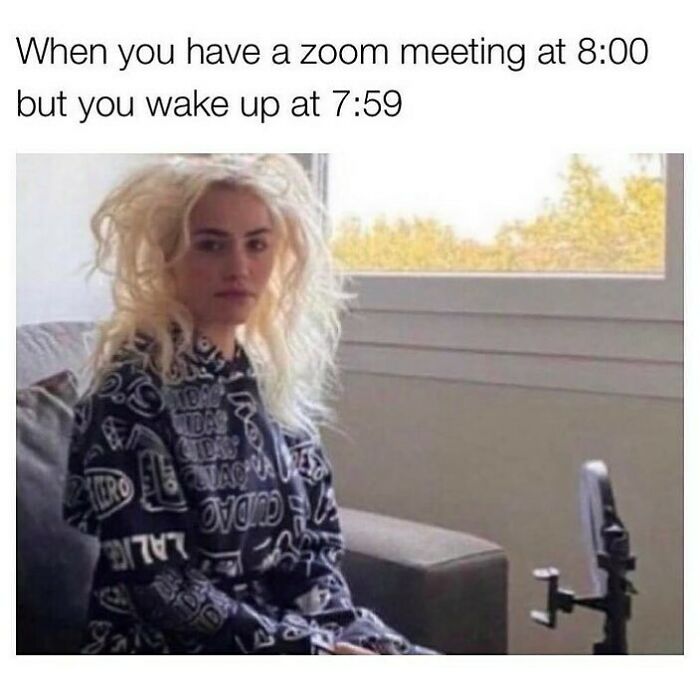Being sarcastic gets a bad rep. They say sarcasm is for those who are incapable of honest and heartfelt communication. I say: “Do not slander my sarcastic king Chandler Bing like that!” (The rhyme is accidental, apologies.) Yes, it is a coping mechanism for those of us who often feel awkward during emotional moments. That’s where its element of relatability comes from.
The Instagram account I’m Being Sarcastic posts daily comedy snippets from TikTok, X (formerly known as Twitter) and other meme-tastic internet places. For some insights into what properties sarcasm brings to comedy and what we deem funny, Bored Panda reached out to Steven Kapica, assistant professor of English at Keuka College, and assistant professor Peter Kunze at Tulane University. Check out their thoughts below! And if you’re looking for a good laugh, scroll through our selected posts and let us know: could this list BE any better?
This post may include affiliate links.
Academics Steven Kapica and Peter Kunze were kind enough to share their expertise on sarcasm in comedy. Both agree that using sarcasm can easily lead to confusion and misunderstandings.
Peter Kunze notes sarcasm’s linkage to insincerity. “[O]nline, the sincere and the insincere are always difficult to distinguish. It truly is in the eye of the beholder,” he says. Dr. Kapica observes that sarcasm is location-specific and is best used in contexts where audiences are “in the know” and “of like mind”.
I do it after I've run for the bus so no one on board thinks I need medical assistance
There are instances when sarcasm should be used cautiously. “Teachers, for instance,” Kapica adds, “should generally steer clear of using sarcasm in the classroom. Bad idea because the student/teacher relationship is rife with complicated power dynamics.” That’s why the relationship between the user and the receiver is very important.
“[P]erformers have very specific kinds of relationships with those to whom they perform. Sarcasm, then, is a performative choice, a choice built upon audience awareness. Performed sarcasm should be attuned to its intended audience. And when I say ‘performed,’ by the way, I mean everything from telling a joke to creating and posting a meme,” clarifies Kapica.
The sheer amount of comedy accounts online that rely on sarcasm would suggest that it automatically makes everything funny. Dr. Steven views it as a double-edged sword. “Done well, sarcasm can elevate an otherwise basic (lame) joke. Tongue-in-cheek, what have you. Done very well, it can provide layers and nuance. A meme or joke that engages its audience on multiple levels? Good comedy.”
“Conversely, poorly executed sarcasm can sink an otherwise good or well-intentioned joke or piece of comedy. I think of Daniel Tosh’s [sexual harassment] joke debacle (and George Carlin's far superior handling of subject matter generally deemed ‘off limits’).”
When our dog was a little puppy, she would follow me everytime I had to get up at night. She waited patiently in front of the door, followed me back into the bedroom and after she was back in her bed and comfy again, she sighed deeply and released. Humans are exhausting!
We come back to context. “Context is everything in comedy,” says Kapica. “Context is why some scholars and comedians argue that jokes can't effectively cross cultural borders. What's funny to an urban New Yorker is not necessarily funny to a reader in the Southern Tier (rural, western New York). The same is true with American-oriented comedy and, say, Brazilian-oriented comedy.”
“Because sarcasm is so context-dependent, it is far more likely to miss than hit its mark. And when sarcasm misses its mark, it misses BIG,” claims Dr. Steven. He points to “cancel culture” as one of the best examples of a failed attempt at sarcasm.
Memes about work life and relationships tend to get the most views online. Sarcastically looking at these topics can offer us some release. “[W]hen do we most need the release sarcasm can offer?” asks Kapica.
“When we're buried in work, wrestling with incompetence, bored out of our minds, butting heads with colleagues, or bosses, or simply facing insurmountable tons of tedious work. Or when the ebbs [and] flows of our relationships test our sanity and will to live.”
The simpler answer is that those are just universally the most relatable topics. “Work and relationships are two of comedy's commonplaces. Everyone works. Everyone has relationship troubles. Everyone poops,” Kapica quips. “Work and relationships. Farts. These are both easy targets and necessary targets (the comedy-as-release, or topical pain relief, factor).”
If I don't already have my glasses on I'm not going to find the rest 😐
Was Oscar Wilde right, then? Is comedy really the lowest form of wit? Peter Kunze says it’s not necessarily the lowest, but it is on the easier side. According to him, people tend to like clever wordplay or satirical edge in their jokes. “The casual irony of sarcasm, imbued with snark and derision, can make it rather alienating—but also quite fun,” he adds.
And if you ever meet the dad ask him why he dresses so weird and then walk off
Steven Kapica regards physical pain-based comedy the lowest: “Think Ow! My Balls! from Mike Judge's brilliant and prophetic Idiocracy.” Though he agrees that sarcasm is near the bottom of the barrel. “It doesn't take much skill to inflect a phrase with sarcasm in response to an authority's power move, or to use sarcasm to point out what is already obvious to everyone; the jokester who feels inclined to perform what everyone else is thinking isn't [a] comic genius.”
And also last thing at night!?- I literally told my friend before she became my housemate, that I needed at least 15 mins of quiet alone time each evening to wind down and she said "no problem"..........then moved in and proceeded to talk THE ENTIRE TIME while I was "winding down", then got offended when I kept reminding her it was my "quiet time".........when she moved out her chief comment was "it's probably best I move out. Now, before we ruin the friendship- because you've been a b*tch to me lately!
He gives another example from cinema: “The scene from Raising Arizona (1987) where Glen (Sam McMurray) tries to explain what a ‘way-home-er’ joke is to Nick Cage's H.I. The scene is funny because it's broadly acted (slapstick; visually funny); the scene is witty because it layers H.I.'s reaction to Glen with the film audience's reaction to Glen and H.I.'s reaction to Glen. It's meta-comedy. That's wit.”
Kapica doesn’t see much sense in ranking forms of wit and comedy. “I think sarcasm plays an important role in human interaction, in humor,” he admits. “Sarcasm can be an effective means of gauging, guiding, and winning one's audience ‘in the moment.’ But that's ‘live’ sarcasm. Internet-based sarcasm is... oof.”
That’s a pretty big “oof”. Internet-based sarcasm is one of Kapica’s academic interests at the moment. He says sarcasm online works best when used in closed groups. “Sarcasm used within a specific internet-based community can (does) land because its audience is a given, a known quantity. Everyone is speaking the same language.”
“The problem (and it's a BIG problem) is when that sarcasm (think ‘inside jokes’) gets taken out of its original context. It is for this reason that so much internet-based humor is hit-or-miss.” His final advice for online jokesters is: “1) Know your audience and 2) Never forget that everything on the internet stays on the internet.”
My phone does not replace f*cking with any other word that sounds the same. It leaves it alone and knows why I used the word and f*cked if it's going to make the same mistake twice
But J.Lo got millions of dollars, personal chefs, fitness trainers, designer clothes, plastic surgery and professional make up artists and hair stylists. I got none of those things.
The one (1) time I have been in Forever 21, it was because I saw a shirt in the window that I knew my then-partner would love. Couldn't find it, asked an employee despite the fact that I hate asking employees. Three different people got involved, final consensus was no, they didn't have it. I found it by accident on my way out the door.
I have to keep transferring these thousands of pictures of all my dogs every time I get a new phone. So time consuming
Yes, this was one of the best posts in a long while!
Load More Replies...When I was growing up my mom kept our drinking water in the fridge in an empty rum bottle. Once during a cookout my mom grabbed it to make KoolAid. My aunt almost had a heart attack. It was really funny.
Yes, this was one of the best posts in a long while!
Load More Replies...When I was growing up my mom kept our drinking water in the fridge in an empty rum bottle. Once during a cookout my mom grabbed it to make KoolAid. My aunt almost had a heart attack. It was really funny.

 Dark Mode
Dark Mode 

 No fees, cancel anytime
No fees, cancel anytime 









